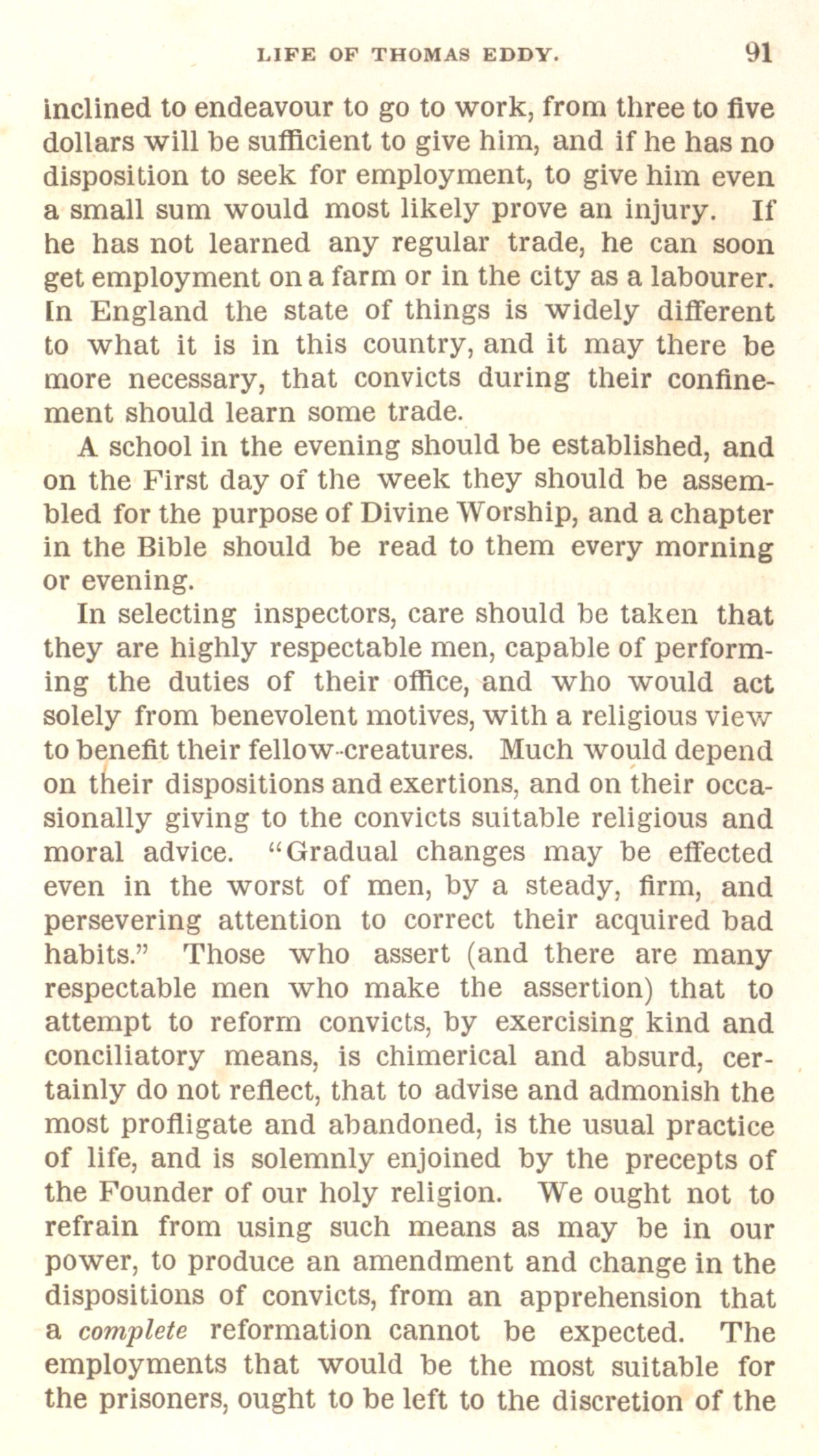inclined to endeavour to go to work, from three
to five
dollars will be sufficient to give him, and if he has
no
disposition to seek for employment, to give him even
a
small sum would most likely prove an injury. If
he has not learned
any regular trade, he can soon
get employment on a farm or in the
city as a labourer.
In England the state of things is widely
different
to what it is in this country, and it may there be
more necessary, that convicts during their confine-
ment should
learn some trade.
A school in the evening should be established, and
on the First day
of the week they should be assem-
bled for the purpose of Divine
Worship, and a chapter
in the Bible should be read to them every
morning
or evening.
In selecting inspectors, care should be taken that
they are highly
respectable men, capable of perform-
ing the duties of their office,
and who would act
solely from benevolent motives, with a religious
view
to benefit their fellow creatures. Much would depend
on
their dispositions and exertions, and on their occa-
sionally giving
to the convicts suitable religious and
moral advice. Gradual
changes may be effected
even in the worst of men, by a steady,
firm, and
persevering attention to correct their acquired
bad
habits. Those who assert (and there are many
respectable men who make the assertion) that to
attempt to reform
convicts, by exercising kind and
conciliatory means, is chimerical
and absurd, cer-
tainly do not reflect, that to advise and admonish
the
most profligate and abandoned, is the usual practice
of
life, and is solemnly enjoined by the precepts of
the Founder of
our holy religion. We ought not to
refrain from using such means as
may be in our
power, to produce an amendment and change in the
dispositions of convicts, from an apprehension that
a complete reformation cannot be expected.
The
employments that would be the most suitable for
the
prisoners, ought to be left to the discretion of the

